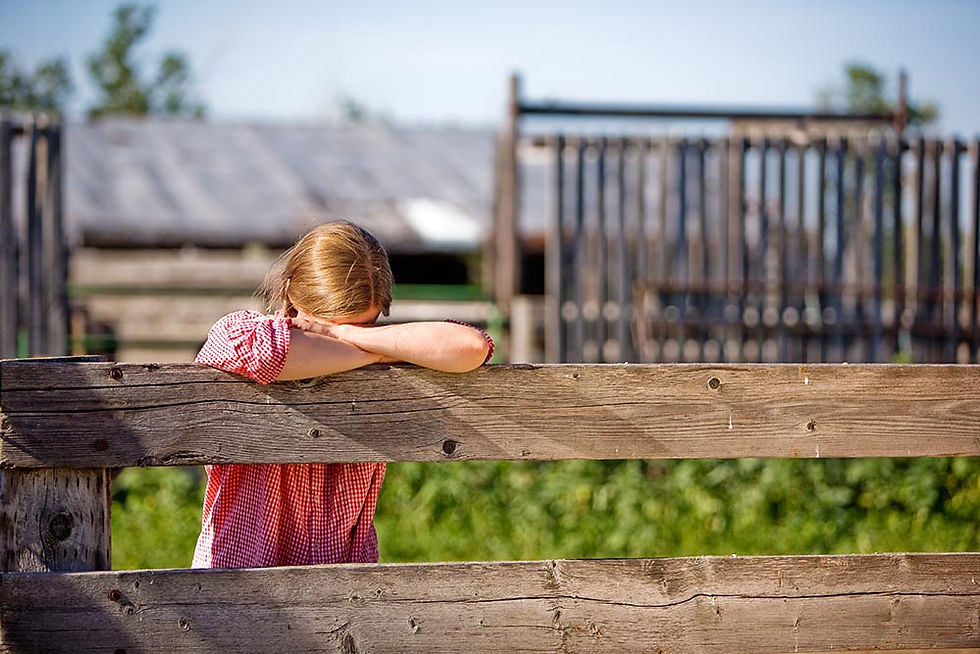
This is an uncomfortable and deeply troubling statistic: farmers take their own lives at higher rates than people in many other professions. But as people’s mental health becomes a less taboo topic, it becomes even more necessary to discuss in this new year.
“The increase of farmer suicide in recent years represents an important public health concern and requires an understanding of the circumstances and risk factors that contributed to a farmer’s decision to die by suicide, as well as the protective factors that can help farmers manage the stressors,” read an international study led by Dr. Rebecca Purc-Stephenson, an applied social psychologist at the University of Alberta Centre for Sustainable Rural Communities (ACSRC).

Purc-Stephenson developed AgKnow, a non-profit mental health network in Alberta, in 2022. She is also a board member of the Canadian Centre for Agricultural Wellbeing.
AgKnow describes its purpose like this:
“Our mission is to de-stigmatize mental health and promote resilience among farmers and farm families so they can lead fulfilling and productive lives.
Our vision is to create a shift in farming culture so mental health becomes a natural part of farm life.”
RELATED: AgKnow is conducting a study of farmers in Alberta, Canada. But you can read the questions that are used to learn about farmers’ mental health here.
While Purc-Stephenson’s two decades of research and dedication concentrates on farmers in Canada, it provides broader context that could apply to challenges in the United States, too. From the outside, the life of a farmer may seem idyllic, peaceful… the true American spirit of independence and freedom.
But as anyone who works in the industry knows, there are so many stressors that can make producers feel overwhelmed. Many of those were prevalent in 2023: extended drought, flooding, disease outbreaks, higher inflation, elevated borrowing costs, and increased input costs. A farmer’s life is so heavily impacted by these outside factors.
“We’d really like to shift the culture of farming to recognize that mental health is just as important as running the farm, and that it’s OK for farmers to talk about it and seek help when they need it. And we want service providers to know how to communicate with farmers and what their stressors are,” Purc-Stephenson told the University of Alberta team as she began the research project in 2022. “While we won’t be able to eliminate the ongoing work stressors farmers face, we can help them build resilience, so they feel more capable of coping.”
The frequent mindset of farmers is that they need to just figure it out…whatever the challenge might be. And the challenges may be weighty and too much for one individual trying to handle them alone. “Stoic, always-working, self-reliant farmer who keeps their issues to themselves,” Purc-Stephenson explained.
RELATED: University of Alberta researcher Dr. Rebecca Purc-Stephenson laid out the purpose of her efforts to better understand the life and challenges for farmers in this article for the university. Read it here.
Purc-Stephenson and her team explained the research that included information obtained by reaching out to the people closest to the farmers who died by suicide. “We conducted a systematic review and meta-synthesis to understand the risk and protective factors preceding the farmers’ suicide from the perspectives of their partner, relatives or individuals who worked closely with them.”
RELATED: A study by Dr. Andria Jones-Bitton at the University of Guelph found that one in four Canadian farmers felt like their life was not worth living or experienced thoughts of suicide over the past year. View those findings here.
Ultimately, Purc-Stephenson’s research identified seven themes that became evident after studying the circumstances that contributed to suicides:
1. Maintaining a ‘farmer’ identity
2. Financial crisis
3. Support and stress of family
4. Community panopticon (which can be how farmers and community members see each other)
5. Isolation from others
6. Access to toxins and firearms
7. Unpredictable environment
The research summed up the challenge to community members, mental health professionals and decisionmakers to better support the vital needs of farmers: “Policymakers and healthcare providers should consider developing and delivering mental health literacy programs to farmers and those who work closely with them to identify symptoms of poor mental health and to facilitate attitude change. Greater access to health care should be a priority in rural areas and clinicians should be familiar with the stressors farmers face so that they can ask questions about their work–life balance to better assess the farmer’s mental health and risk of suicide.”
RELATED: Get a deeper understanding of the seven main challenges that the research identified for farmers. Read Dr. Rebecca Purch-Stephenson’s research findings here.
Resources for farmers in the United States remain limited. But there are some. Successful Farming provided this article that looks at the potential benefits of online therapy. Find that here.
The USDA also provides these additional resources. Access those here.
